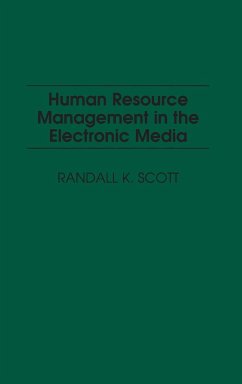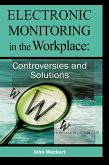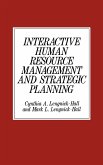With the advent of new technologies and governmental regulation, notably the Telecommunications Act of 1996, not only has the broadcast industry changed dramatically, but also the laws covering the management and its human resources. Executives must know and understand these changes to operate within the law and to make best use of their people. With careful attention to scholarly accuracy and the latest thinking, Scott's book approaches the crucial human resource problems in broadcasting with a hands-on awareness of what really goes on among broadcasting industry people and the organizations that depend on them. Scott writes for practitioners and provides the information they can use daily, supplying academic professionals and students of broadcasting management with an important resource. Chapter 1 briefly describes the broadcast industry, with special attention to significant technological changes and regulations. Chapter 2 examines the standard regulatory challenges faced by broadcasters. Chapters 3 and 4 review the major management and motivational theories over the past 150 years. These theories are then critiqued and applied to current personnel problems. The section on broadcast ethics discusses moral and ethical frameworks to help managers make the right decisions. In Chapter 5, the duties of the human resource director are noted along with pertinent EEOC laws banning discrimination. Chapter 6 reviews the employment process, including interviewing, training, performance reviews, progressive discipline, and the proper, legal method to terminate an employee. Chapter 7 enumerates the duties and responsibilities of the programming area including the operations manager, chief engineer, program director, and other department heads. Types of radio and television programming are discussed along with effective scheduling strategies. The book concludes with Chapter 8, Sales, which includes discussions of the Arbitron and Nielsen ratings organizations, sales proposals, and duties of the sales personnel.
Hinweis: Dieser Artikel kann nur an eine deutsche Lieferadresse ausgeliefert werden.
Hinweis: Dieser Artikel kann nur an eine deutsche Lieferadresse ausgeliefert werden.








